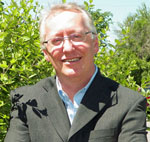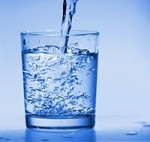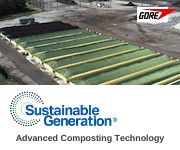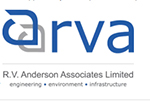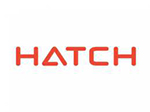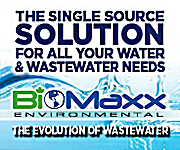 |
||||||||||||||||||||||||||||||
| Subscribe | Past Issues | www.cwwa.ca | Water Source Magazine | ||||||||||||||||||||||||||||||
|
CWWA News
IF you are one of the few Canadian water professionals that did NOT register for the National Water & Wastewater Conference, you’ve been missing a really great virtual series. We’ll share more next month in this e-Bulletin, but it’s not too late to sign up for the last few sessions as we run through to February 3rd. Signing up will also get you access to all the recordings of all the sessions so you can watch on your own schedule. And remember…I’m in all of them! ☺
(Attend the CWWA Virtual Symposium on Drinking Water Quality Management and find out!) Laith Furatian PhD, P.Eng. March 21 and 22, in two 1.5-hour installments, the CWWA will host international experts in a virtual symposium on the topic of ensuring safe drinking water through drinking water quality management. Presenters will discuss approaches to quality management and continuous improvement, share practical experience and successes, and discuss challenges. A detailed program will soon be released. Please stay tuned for how to register.
We've had a great month of webinars and are wrapping up the series with our final two topics, as well as our virtual networking event.
Federal Initiatives
As covered in the December issue of the CWWA Bulletin - Environment and Climate Change Canada recently published consultations on proposed changes to the WSER. These changes are intended to fill gaps in the transitional and temporary authorization provisions and additional improvement to the Regulation. ECCC presented the proposed amendments during the CWWA webinar series, The government has published a new document summarizing how temperature is discussed in the Guidelines for Canadian Drinking Water Quality. The document states that all water utilities should implement a risk management approach requiring a system assessment that: characterizes the water source; describes treatment barriers; highlights the conditions that can result in contamination; and identifies control measures. The Guidelines for Canadian Recreational Water Quality comprise multiple guideline technical documents that consider the various factors that could interfere with the safety of recreational waters from a human health perspective. They provide guideline values for specific parameters used to monitor water quality hazards, and recommend science-based monitoring and risk management strategies. The proposed technical document for these guidelines is available for public comment from December 17, 2021, to February 15, 2022, on the Health-Related Consultations website. Comments can be submitted by email to: water-eau@hc-sc.gc.ca. ESE Magazine A federal court and the Court of Queen’s Bench of Manitoba have approved a historic $8 billion class-action settlement to address decades of clean water access issues on First Nations reserves across Canada. As part of a broad initiative to develop decision support tools for the design and rehabilitation of core public infrastructure to ensure adequate performance under existing climate and future climate change, the National Research Council of Canada (NRC) and Infrastructure Canada (INFC), in partnership with collaborators and stakeholders, undertook a study to examine risks and potential opportunities emerging from changes in precipitation, temperature and freeze/thaw cycles on water distribution system resilience and performance. Specifically, the project addressed the following: 1) the impacts of temperature and precipitation changes on water consumption and the ensuing implications for hydraulic capacity, 2) the impacts of temperature and precipitation changes on energy consumption in water distribution system operation, 3) the impacts of changes in temperature, precipitation and freeze/thaw cycles on water main breaks, and 4) the impacts of temperature changes on water quality (through tracking of chlorine residuals). This work is envisaged to serve as a first step toward the development of a set of tools for water utility companies to evaluate their system vulnerabilities to changing climate. Member News
It is with great pleasure that CWWA informs its members about the appointment of Mr. Mathieu Laneuville as President and Chief Executive Officer of Reseau Environnement who took office on January 1, 2022.
Since we designed our first water storage reservoir in 1948, we’ve engineered modern solutions for age-old challenges in our water systems for over 130 communities. We base our approach on an understanding of local water cycles at the heart of global issues, such as economic development, environmental sustainability, energy use, and conservation.
Hatch is passionately committed to the pursuit of a better world through positive change. All over the world, water and wastewater utilities trust us for clean water processes, wastewater treatment and resources recovery, linear infrastructure, combined sewer overflow control, process modelling and automation, climate change and resiliency initiatives, and alternative project delivery.
Provincial News
The following regulations are made under the province’s Safe Drinking Water Act, 2002. Among other things, the regulatory changes ensure the ministry and owners and operators of wastewater facilities have the staff they need to continue operations in an emergency by extending operator licences and allowing certain qualified but non-licensed staff to temporarily maintain system operations:
The following regulation is made under the Ontario Water Resources Act:
Snippings & Clippings
AON Canada is increasingly targeted by cybercriminals intent on getting rich from cyber security breaches, including ransomware attacks. Learn more about how the public sector can and should respond. Water Online A legal showdown between a U.S. state and one of its largest cities has been launched over alleged falsification of wastewater data and its resulting environmental harm. Water Canada Embracing diversity in the water workforce is more than just a good idea—it is a fundamental necessity. The water sector employs a diverse range of occupations—including researchers, regulators, policy analysts, manufacturers, and operators—across all areas. At the same time, there is a need to recruit and retain non-traditional candidates—including women and young professionals—that will enable organizations to remain competitive, productive, and profitable. Water Canada A strong partnership between University of Saskatchewan researcher Dr. Helen Baulch (PhD) and the Buffalo Pound Water Treatment Plant is bringing cutting-edge monitoring equipment to Saskatchewan to advance lake science and safeguard drinking water for 260,000 people. ESE Magazine Following some delay, the federal government managed to publish its draft regulations prohibiting six types of single-use plastic products within its expected timeline. Fast Company If a drop of rain falls in Chengdu, China, it will flow nearly 2,000 miles away to the East China Sea. In Cochabamba, Bolivia, rain flows through multiple rivers to the Amazon in Brazil, eventually reaching the Atlantic Ocean more than 3,000 miles away. Rain falling in Custer, South Dakota, travels 2,600-plus miles to the Gulf of Mexico. De Zeen An angular concrete building and an underground reservoir form a stormwater treatment plant in Toronto by Canadian firm GH3 that is meant to "signal a new and distinctive city precinct". LENCONNECT State officials last month released a management plan for improving Lake Erie water quality, but environmental groups say the plan is flawed. The adaptive management plan is part of efforts in Michigan, Ohio and Ontario to reduce the number of harmful algal blooms that happen in Lake Erie. It is the companion document to the state’s previously released domestic action plan addressing the causes driving harmful algal blooms in Lake Erie. Water Online An elected official in Alaska’s largest city seemingly took it upon himself to stop a standard drinking water treatment practice, then offered a confusing response when pressed for an explanation. Water Online Among all the Lead and Copper Rule Revisions (LCRR) regarding testing, reporting, and reacting to lead levels in drinking water is an entirely new requirement for water testing at K-12 schools and licensed childcare centers in a utility’s service area. Here are some thought-provoking considerations for involved schools and the utilities, government officials, and engineering firms who serve them. Water Online Now according to the EPA Lead and Copper Rule (LCR) revision (announced December 16, 2021), public water systems have more work to do. LCR requires cities to develop a lead service line inventory by October 16, 2024. Yet utilities are hindered by missing and inaccurate service line records. Fortunately, machine learning technology now in use in over fifty cities across the U.S. can be used by cities nationwide to address this information gap. |
||||||||||||||||||||||||||||||
